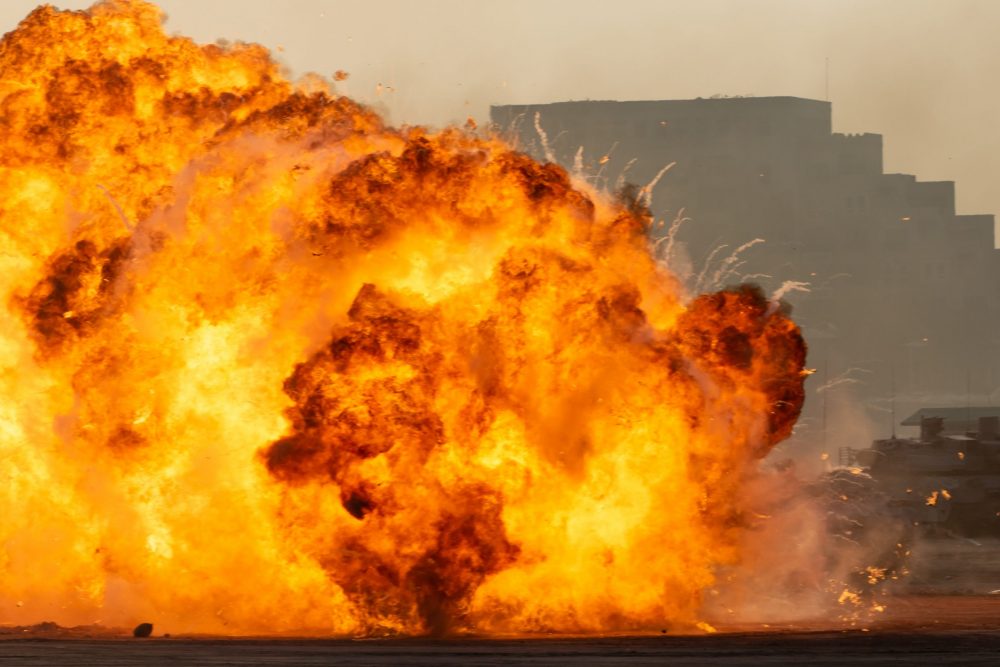- 25 Aug, 2022
- 0
- Tom H. Hastings
- Tom Hastings
Sanctions or bombs? Rubles or rubble?
Sanctions or bombs? Rubles or rubble?
by Tom H. Hastings
691 words
When Hitler invaded Poland, 1 September 1939, the US…did nothing.
But the UK and France declared war on Germany.
While Germany was blitzkrieging around Europe, and Japan was ravaging China and Korea, the US was trying to figure out its own course, mostly with fairly weak sanctions that slowly grew stronger.
The war raged for more than two years and two months and then, 7 December 1941, Japan bombed Pearl Harbor and the US was all-in, declaring war on all Axis powers–Japan, Germany, and Italy.
All told, World War II stretched from 1 September 1939-15 August 1945 (formal signed surrender 2 September 1945), just about exactly six years (in some ways, the war stretched back in history as imperial Japan was invading and occupying its neighbors, but it really emerged as a world war once the Axis powers and then Allied powers made it global).
Six years to defeat the Axis powers, but now, after a half year of Putin’s illegal imperialistic invasion of Ukraine, we are being told that sanctions are just taking too long.
Peace scientists and nonviolence scholars ask the counterfactual, what if Russia were allowed to invade and occupy Ukraine but the vast majority of countries imposed crippling sanctions on Russia until they left?
By now it’s just a hypothetical, of course, since the war continues its destruction daily and war decidedly escalates resolve as atrocities are exchanged. All warring parties increasingly hate and dehumanize The Other, beginning with the leaders, the military, and spreading to the citizens or subjects of the enemy country. Indeed, studies show that bombing people does not destroy their morale, but rather increases their resolve to fight even harder and longer. At this point, the likelihood of some nonviolent pivot to oppose Putin is unimaginable.
Still, it is worth contemplating, if not for Ukraine, then for all of us, for our futures.
When Hitler invaded Denmark in April, 1940, the Danes decided to let them. They offered no military resistance. They lost by far the lowest rate of mortalities of any European country in WWII. They were occupied for five years and it was unpleasant but they lost no infrastructure, few lives, and they used a great deal of intelligent nonviolent resistance to blunt any advantage the Nazis attempted to gain. When the deep moral challenges arose, they met them with robust nonviolence–e.g., sheltering, accompanying, and helping Danish Jews escape once the Final Solution order came.
One wonders what six years of deep sanctions on Russia by more and more nations might have accomplished.
If Ukrainians emulated the Danes and used nonviolence one might logically expect many more Russians to sympathize with Ukrainians and engage in forms of nonviolent resistance to Putin’s brutal adventurism, weakening his hold on power from within, even as sanctions weakened him from without. But when Russian troops are killed, many more Russians feel obligated to patriotically support their strongman and to agree with repression of “cowardly” and “unpatriotic” Russians who call for peace.
Already more Ukrainian civilians have lost their lives than Danes did in the five years of occupation by the Nazis.
When will humankind evolve past war? When will we learn that nonviolent methods are far more gain with far less pain than violence?
Who is calculating all the costs of this catastrophe in Ukraine? What is the carbon footprint of fighter jets, bombed oil depots, thousands of tanks and other ground transpo? We face the consequences of anthropogenic climate chaos in every part of the planet yet we only contemplate “blood and treasure” (war dead and financial outlays), not the many other costs of war vs a nonviolent resistance. Our mainstream media and government analysts are treating this massive carbon outlay as nonexistent. They act as if they are analyzing a war with horse-drawn cannons and marching divisions of soldiers and sailing ships instead of warships and air force fuel consumption.
It’s heartbreaking to see our species evolving so fast with gadgets, devices, and all manner of tech, yet failing to grasp both existential threat and paths away from those threats.
Humankind will evolve past war or die for lack of trying.
___________________________

Dr. Tom H. Hastings is Coördinator of Conflict Resolution BA/BS degree programs and certificates at Portland State University, PeaceVoice Senior Editor, and on occasion an expert witness for the defense of civil resisters in court.
Published: My Journal Courier
© 2023 PeaceVoice

tom-h-hastings